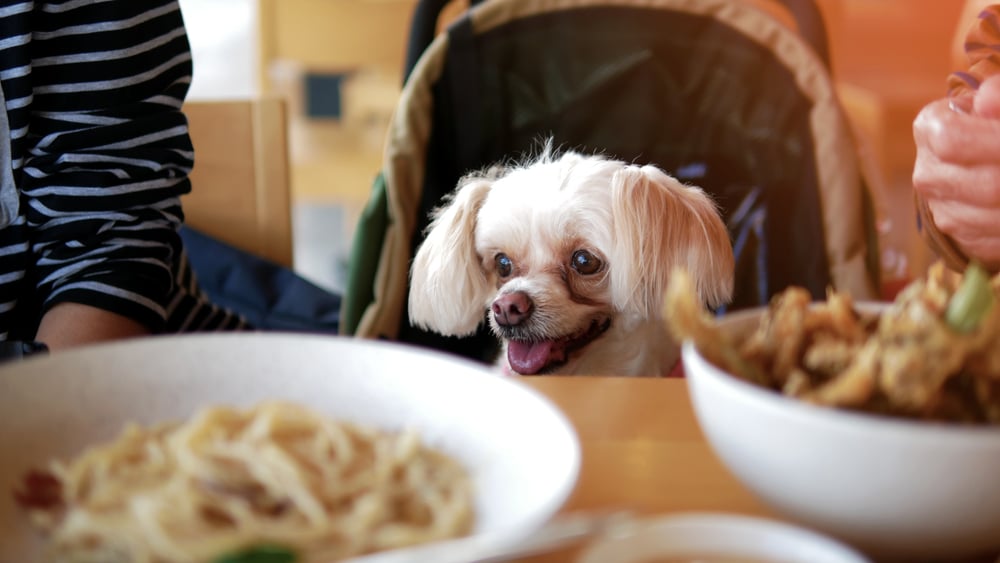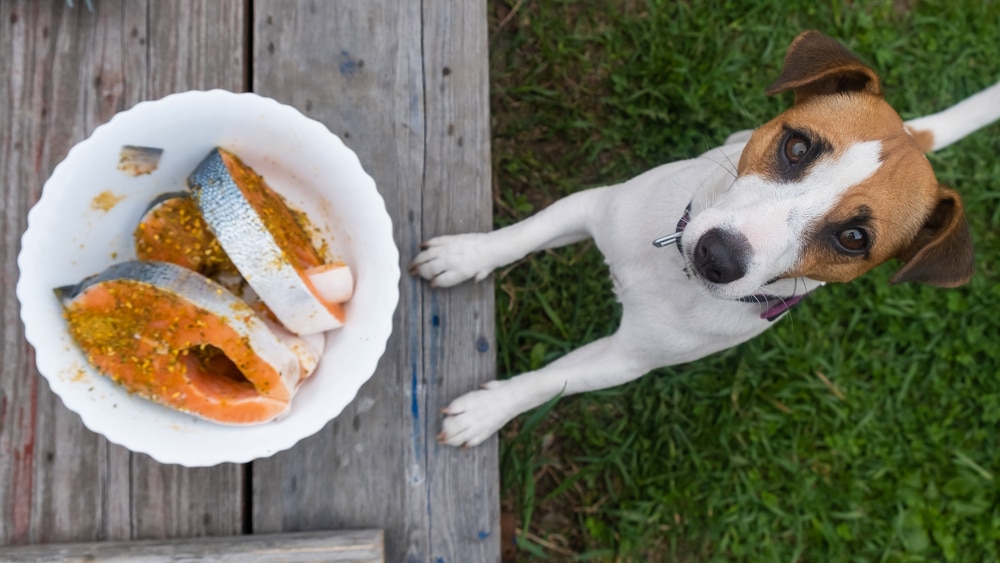When it comes to our furry friends, we want the best for them and their health. But can dogs handle a little spice in their diet? Many pet owners believe dogs should not have any herbs at all, while others feel that certain spices are okay in moderation. But is there any definitive answer? Can dogs eat spices?
It’s not safe for your dog to consume spices. Spices can be too strong for a canine’s digestive system and may cause stomach or gastrointestinal upset. Dogs have sensitive systems, so avoid adding any spice to their diet. If your pup consumes an abundance of spicy food, it can lead to intense thirst and even vomiting. Contact your veterinarian if they do.
Table of Contents
Why Can’t Dogs Eat Spices?
There are many reasons, such as:
- Spices contain high levels of sodium, sugar, fat, and preservatives that are unsuitable for dogs.
- Spices are too strong for a dog’s digestive system. Dogs have sensitive systems, so spicy seasonings, and herbs can overwhelm them.
- Spices can irritate their stomachs and cause vomiting or diarrhea. This is especially true if they eat too many of the wrong spices at once.
- Dogs do not process spices the same way humans do and can be at risk for an allergic reaction if they consume certain ingredients.
- Some spices may contain harmful toxins to dogs, such as garlic or onion powder, which can cause anemia in canines.
- Too much spice intake can lead to dehydration and weight loss, as spices are not a natural part of a dog’s diet.
Spices That Are Toxic For Dogs To Consume
When it comes to spices, not all of them are safe for your pup. It’s best to avoid giving your dog any kicks as they cannot process them as humans do, which may lead to several health issues. The following spices are the most dangerous for dogs.
Allspice
Allspice contains eugenol, a substance that can cause liver failure in dogs. It is also known as pimento or Jamaican pepper, made from dried berries. Allspice also contains compounds called phenols which are toxic to canines and can cause an upset stomach, vomiting, and diarrhea. The best way to avoid this is to not give your pup this spice at all.
Chili Powder
Chili powder is a blend of hot peppers and garlic, which can be toxic to dogs if they consume too much. The capsaicin in chili powder can also irritate the digestive system and burn the throat and tongue. Too much chili powder may lead to flatulence and even symptoms like difficulty breathing and increased heart rate.
Onion Powder
Onion powder contains high sulfoxides and disulfides that can be fatal to dogs. It can also damage red blood cells. High doses of onion powder can lead to anemia in canines which could result in death if it is left untreated. Overall, onions can be dangerous for dogs, regardless of whether they are cooked or raw.
Paprika
Paprika is a mild-flavored, red-colored spice made from dried ground peppers and ripened fruit pods of Capsicum annum. It is highly toxic for dogs. Dogs that consume too much paprika may experience stomach irritation or excessive thirst.
Bay Leaves
Bay leaves are the dried, sharp edges of the bay laurel tree. These leaves contain aromatic compounds such as eugenol, acetyl, and methyl-eugenol, which can be toxic to dogs in large quantities.
Also, the sharp edges of bay leaves may damage dogs’ mouths, throats, and intestinal tracts. These substances irritate the dog’s gastrointestinal tract, causing muscle weakness, abdominal pain, vomiting, and diarrhea.
Cloves
Cloves are small, dried, and nail-shaped flower buds from Syzygium aromaticum. The eugenol in cloves can be toxic to dogs, so it’s best to avoid feeding your pup this spice. Cloves may cause lethargy, excessive drooling, pale or yellow gums, seizures, redness or burns on the lips, gums, or tongue, and even death.
Cocoa Powder
Some pet owners mistakenly think their dogs can enjoy cocoa powder like humans, but it is highly toxic for dogs.
Cocoa contains theobromine, a stimulant similar to caffeine, that affects the dog’s central nervous system and can be poisonous in large amounts.
Cocoa powder can cause vomiting, rapid breathing, restlessness, and seizure. It can also lead to heart failure.
Nutmeg
Nutmeg is an aromatic spice used in many recipes. While it is safe for humans to consume in small amounts, it can be dangerous for dogs. It contains myristicin, a hallucinogenic compound that can cause hypertension, tachycardia, and seizures.
Too much nutmeg may also lead to nausea, vomiting, and disorientation in dogs. It is best to avoid feeding your pup any nutmeg at all costs.
Long-Term Effects of Consuming Spices for a Dog
The long-term effects of consuming spices depend on the type of spice. The most common symptoms are:
- Pancreatitis
- Ulcers
- Heartburn
- Vomiting
- Bloody stool
- Dehydration
- Weight loss
- Fatigue
- Gastrointestinal issues
- Developing allergic reactions
Therefore, it is essential to keep your pup away from spice as much as possible and only give them food prepared for dogs. If you notice these symptoms, you should take your puppy to the vet immediately.
They may need emergency medical treatment to prevent any long-term damage. Taking all the necessary precautions and avoiding spices will give your pup a healthy and safe life.
Which Spices Are Good for Dogs?

Fortunately, some spices can be beneficial for dogs. When it comes to condiments, moderation is key. Please ensure you only add a pinch of healthy herbs to your pup’s food and never give them in large amounts.
Cinnamon
Cinnamon contains powerful antioxidants and anti-inflammatory properties and is a great way to reduce the dangerous aflatoxins in store-bought food. It helps to regulate blood sugar levels.
Adding this spice to your dog’s diet can significantly help combat diabetes too.
Turmeric
Turmeric contains curcumin, promotes a healthy inflammatory response, and is a powerful antioxidant that helps reduce age-related diseases in dogs.
It can also help heal skin wounds and burns, prevent oxidative damage to cells, and improve cognitive function.
How Can I Prevent My Dog From Eating Spices?
You can keep your pup safe from any potential harm caused by consuming spices by following these guidelines:
Keep Spices Out Of Reach
Keep spices out of reach for your pup. Put them in cabinets or high shelves that are inaccessible to dogs, and make sure the doors are closed tight so they won’t be able to open them.
Use Airtight Containers
When storing spices, use airtight containers and keep them in a cool, dry place. It will help prevent any odors from leaking out and luring your pup toward them.
Train Your Dog Not To Eat Spices
Use positive reinforcement techniques to teach your dog not to go near or eat spices. Give your pup a treat whenever it stays away from the herbs, and give it enough attention when behaving correctly.
Keep An Eye On Your Dog
When you are cooking with spices, it is vital to be extra vigilant about keeping an eye on your pup. If you notice that it is getting too close to the herbs, take it away from them immediately.
Don’t Leave Spices On The Counter
If you leave spices on the counter or any other surface your pup can access, it will try to eat them. Therefore, putting them away as soon as possible is ideal.
In Conclusion: Can Dogs Eat Spices?
Spices are not suitable for dogs and can be dangerous if consumed in large amounts. In small doses, however, some spices can be beneficial for them.
It is essential to keep your pup away from spice as much as possible and only give them food prepared for dogs. If you notice any symptoms of illness or discomfort, take your puppy to the vet as soon as possible.
Have you ever tried adding spices to your pup’s food? Share your experience with us in the comments section! We’d love to hear from you!
